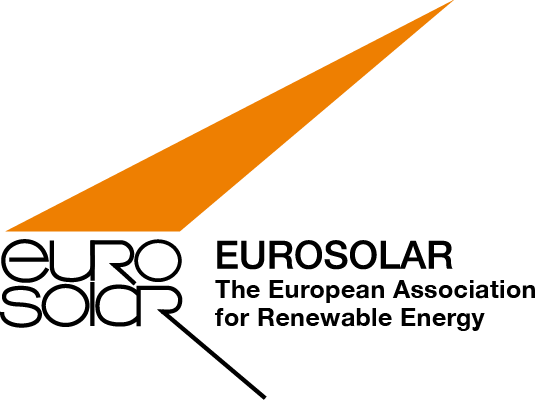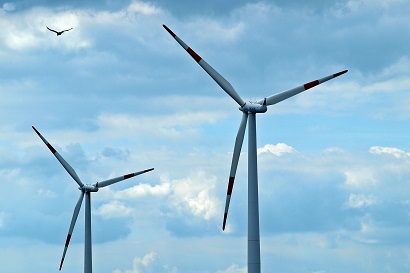Now is the time to use the current willingness of the public sector – EU, federal, state and local authorities – to finance a rapid implementation of the energy transition. What we want is a peaceful and peace-building mobilisation of all forces. The Regenerative Corona Stimulus must be used today – and not just after the crisis.
There will be no social costs if, from now on, less lethal and wasteful industries are promoted, but instead a targeted, radically decarbonised energy market framework is created and renewable technologies are released. Free from the current bureaucratic hurdles, renewable activities, employment and new industries will develop as if by magic.
Every day, the media are full of new case numbers and narratives on the corona crisis, its medical, social and economic effects and individual fates. The much more explosive and threatening climate destabilisation and the existential importance of an immediate energy transition as the essential basis of all ecological measures – from agriculture to transport – are completely forgotten.
The horror that Covid-19 causes in many people is not new for all those who are conscious the horrors of global warming. As frightening as the new virus is, the fossil energy dependency and the droughts, fires, heat waves and floods caused by it and by misuse of land have already claimed many more lives than Corona and have thus a far higher mortality rate than the virus ever could. EUROSOLAR is a central part of the broad social movement towards a regenerative culture. Our contribution lies in the basic demand to immediately implement a sustainable infrastructure for our economy, society and future, today, together. Hence this call.
The well-known principles of a decentralized and resilient energy system transformation towards a 100 percent renewable energy supply can, through the wise use of the necessary Covid-19 stimulus packages, both serve a stabilizing purpose in the short term and – through the immediate reconstruction of our energy and basic supply infrastructure – ensure the survival of the people on the planet in the long term. In this way, all existing ecological and climate-stabilizing goals can also be achieved.
Across Europe, the energy sector is responsible for 75 percent of all CO2 emissions. The total reconstruction is decades overdue. The “Green Deal” envisaged at European level, with its long-term objectives and vague measures, is completely inadequate from the point of view of climate and energy policy. The “Green Recovery Plan” of the Corporate Leaders Group of 180 companies demands that every stimulus plan be a “Green Deal stimulus”. Organisations from the IEA to IRENA – once initiated by EUROSOLAR – refer to post-corona plans until 2050, but this is too far away to be taken seriously as a goal. The existential threat to the continued operation of nuclear reactors – often wrongly argued in the interest of climate protection and hidden in the ‘Green Deal’ – also disappears behind the corona reports: Thus the forest fire around Chernobyl, which continues to rage after weeks, expresses everything that must change in our energy and environmental policy.
Renewable energies mean
a) Increasing resilience through decentralisation and reducing Germany’s and Europe’s import dependency through energy autonomy
b) Contribution to peace because resource conflicts are reduced. Potentially every country can become self-sufficient through renewable energies
(c) The basic condition for climate stabilisation and the mitigation of global warming
Now, in the Corona period, we must seize the opportunity to act, set goals and take concrete steps. These priorities can be implemented in line with market conditions in a framework free of fossil and nuclear subsidies and without subsidies, and at no cost. They are part of an accelerated infrastructure programme in which public action plays a crucial role. Investments in renewable energies are a self-sustaining economic stimulus package if the market blockades and obstacles to renewable energies are removed by a new energy market regulation*. Instead of paying for imported oil, gas and coal, technologies can be developed at home, projects can be supervised, plants can be manufactured and installed by craftsmen. Investments then replace imports. If the blockade of renewable energies in Germany and the EU is lifted, a large number of workers threatened by unemployment can be absorbed without burdening the national budget.
The introduction of this new energy market organisation for economic stimulus can be further increased and accelerated through targeted corona/climate emergency programs. Concrete, feasible and quickly implementable measures for Germany:
1 End of the PV blockade
The 52 GW cap must be removed immediately and renewable energies must be massively expanded. In addition, a special ‘Corona’-1-million-roof-and facade program with investment support of 200-300 €/kWp with a total volume of one billion euros can be launched. Both can be implemented independently of the EEG and combined with local storage facilities.
2 End of the storage blockade through a new energy market regulation system PLUS Corona-Subsidy of about 3 x 300 €/kWh
The state, manufacturers and network operators each contribute 300 euros. The investment subsidy is compensated with free grid feed-in of excess earnings.
3 Unleashing wind power through qualitative rules
With sensible regulations such as ‘no cast shadows on buildings’ and maximum permissible noise pollution instead of rigid distance rules, electronic sensory bird protection, citizen participation and neighbourhood bonuses as well as calculable basic remuneration beyond the volatile electricity exchange prices, the necessary acceptance for wind power can be gained and its necessary expansion implemented. No additional costs are incurred by the federal and state governments.
4 Power2Gas by electrolysis of PV overcapacities and fuel cell electricity generation as decentralized long-term storage
Already, this is a decade overdue. Instead of H2 technology, battery technologies for passenger cars should be promoted. They have a much higher efficiency and soon also the corresponding capacities/kg for longer ranges – long before the rudimentary H2 filling station network can be expanded for a lot of money, even halfway to practical use. In addition, large-scale renewable Power2X development and its use must be promoted, as must the production of hydrogen with surplus electricity from renewable energy plants in natural gas-compatible quality. Additional support for research and development in the amount of one billion euros would be a sensible investment in the future
5 Exploiting energy efficiency potentials in buildings
In the building sector, the renewal rate must be tripled. Incorrect promotion of the insufficient EnEV-KfW standards should be stopped. There is an urgent need for an adequate passive house standard and the prohibition of new fossil heating systems in order to drastically reduce superfluous heating and increasingly also cooling performance in buildings. Instead, all consumption must ultimately be covered monovalently with renewable electricity. This should be supported by energy-oriented development plans (architecture, building orientation etc.). No costs are incurred for the state as a result, because fewer passive houses could be supported with higher sums of the cancelled EnEV-KfW subsidies.
6 Transport transition with public financing of public transport, etc.
This includes free local transport services and the expansion of the cycling infrastructure. Environmentally harmful car scrapping schemes must be abolished and misguided subsidies for hybrids should be redirected to small electric vehicles. Cities that are now accustomed to greatly reduced car traffic as a result of the corona measures can now also take the long-term approach of establishing car-free and low-carriageway zones over large areas and rededicating lanes to public areas, cooling green zones and cycle paths. This measure can also be made cost-neutral by redirecting nonsensical subsidies for diesel, hybrids and commuter allowances.
7 Important not only in corona times: Common sense instead of unnecessary technology in “digitization”
Example: The law for the digitalization of the energy transition forces Smart Metering at the grid level, which is questionable in terms of data protection and unnecessarily complex. At the same time, the stimulation of local smart metering and load management with the help of automated buildings is much more effective and simple: mature technical solutions have been available for 20 years.
There is a billion-dollar savings potential to be exploited in this area: After all, 40 million new meters from network operators, which have to be paid for by the metering point operators, could be eliminated. Instead, cost-effective local solutions could be used.
In general, the gigantic energy requirements of oversized IT and communication systems must be reduced urgently:
This could be a sensible, corona-compatible design for “digitisation” – i.e. smart networking and Internet applications – to avoid counterproductive effects that (over)compensate for the efficiency gains of the hardware. Because remember: A lot of bandwidth and high resolution is only available at the price of oversized computing power. Therefore, it is important to hold fewer video conferences instead of telephone conferences, and not to use more and more streaming instead of linear broadcast TV as long as a full supply of renewable energies is not yet within reach.
The App-fired Sharing Economy has so far clearly missed the announced positive effects. According to current studies, car sharing and over-the-top systems do not lead to fewer, but rather to more cars and movement on the roads.
*Further reading
Without accelerated energy system transformation, serious climate protection is impossible
EUROSOLAR Memorandum on the White Paper “An electricity market for energy system transformation
New Energy Market Organization (NEMO) for the decentralized energy turnaround
With thanks to EUROSOLAR Vice President Dr. Fabio Longo for his contribution and comments.
{fastsocialshare}

